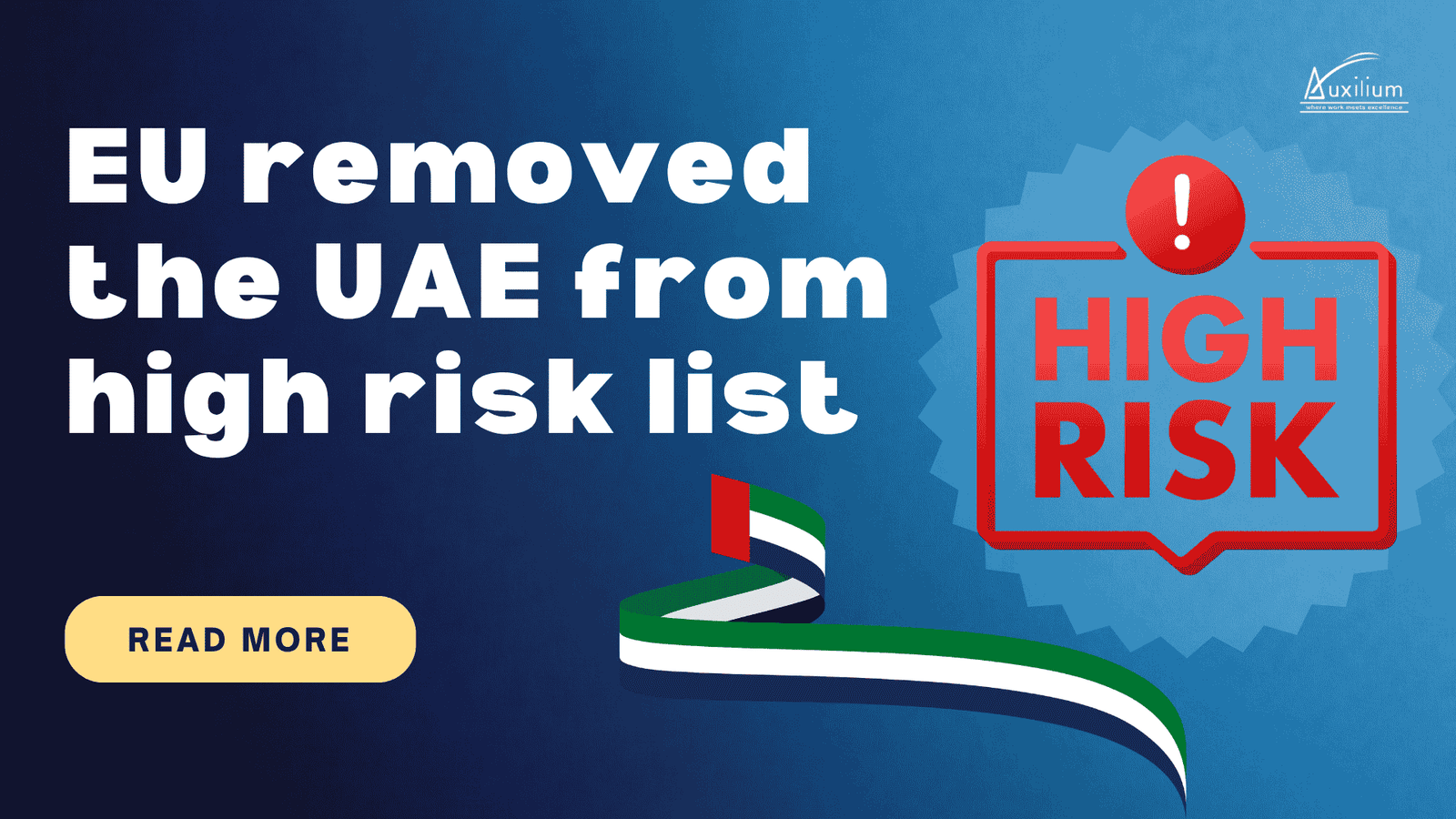On June 10, 2025, the European Commission removed the United Arab Emirates from its list of “high-risk third-country jurisdictions” under the EU’s Anti‑Money Laundering and Countering the Financing of Terrorism (AML/CFT) framework. This delisting aligns the EU’s stance with the Financial Action Task Force (FATF), which had previously removed the UAE from its “grey list” in February 2024.
The change awaits formal approval by EU member states and the European Parliament in the coming weeks. If adopted, it will have tangible and symbolic impacts.
Impact of the UAE delisting.
- Boost to UAE’s Financial Reputation & Foreign Investment.
- Simplified Compliance for Financial Institutions
- Trade & Strategic Cooperation Gains
- Reputational & Political Signal
- Caveats & Next Steps
Boost to UAE’s Financial Reputation & Foreign Investment.
- Enhanced credibility: Being off the EU’s high-risk list underscores the UAE’s reforms—strengthening oversight of virtual assets, financial intelligence, non-financial sectors, and coordination among enforcement authorities
- Cost efficiency: With reduced Enhanced Due Diligence (EDD) requirements, cross-border transactions and correspondent banking relationships become smoother—and cheaper
Simplified Compliance for Financial Institutions
EU-regulated banks and financial institutions will no longer have to apply rigorous EDD solely because of UAE jurisdiction.
- That means less documentation and risk filtering.
- Streamlined onboarding and monitoring for UAE-linked clients.
Operational relief: Compliance teams may reallocate resources to high-risk areas, improving overall efficiency
- Trade & Strategic Cooperation Gains
- Trade facilitation: With fewer regulatory hurdles, EU–UAE trade partnerships—especially in sectors like green energy and raw materials—may accelerate.
- Diplomatic alignment: The delisting is a visible sign of trust, potentially easing future agreements and joint initiatives.
- Reputational & Political Signal
Symbolic validation: It signals global recognition of the UAE’s two-year overhaul—covering legal reform, entity transparency, sanctions enforcement, and improved prosecutions.
Peer pressure: Following the UAE’s lead, other jurisdictions on the FATF or EU watchlists (e.g., Kenya, Lebanon, Monaco) may intensify efforts to de-risk their own frameworks
Final Thoughts
The UAE’s removal from the EU high-risk list marks a landmark moment. It reflects tangible reform, offers economic and operational upside, and boosts geopolitical credibility. All this will make the UAE a better alternative for doing business, and this ease of doing business and improved confidence will also translate into more sales in real estate.


